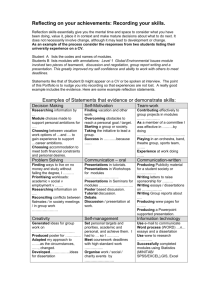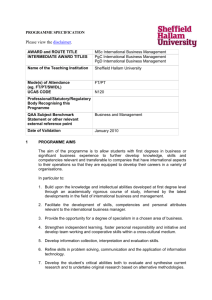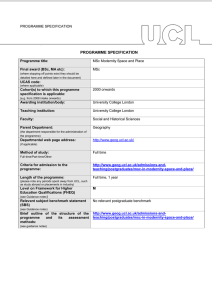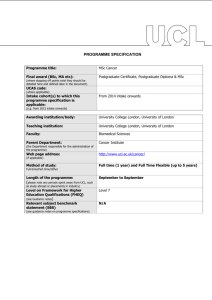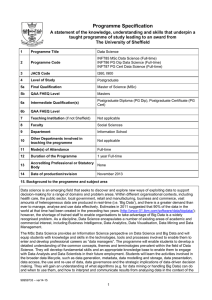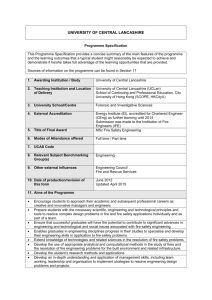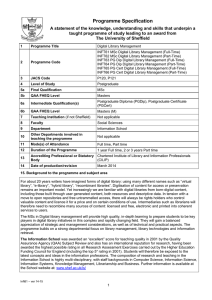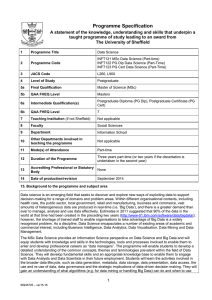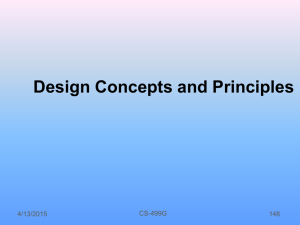MSc Computer Science - Faculty of Computing, Engineering and
advertisement
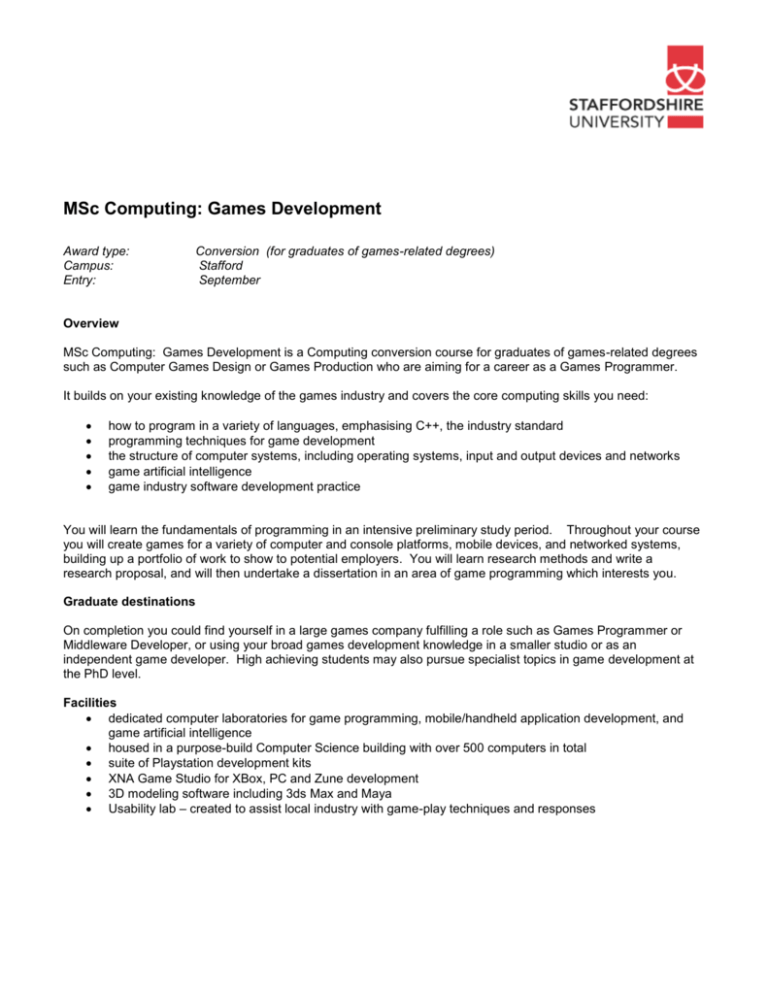
MSc Computing: Games Development Award type: Campus: Entry: Conversion (for graduates of games-related degrees) Stafford September Overview MSc Computing: Games Development is a Computing conversion course for graduates of games-related degrees such as Computer Games Design or Games Production who are aiming for a career as a Games Programmer. It builds on your existing knowledge of the games industry and covers the core computing skills you need: how to program in a variety of languages, emphasising C++, the industry standard programming techniques for game development the structure of computer systems, including operating systems, input and output devices and networks game artificial intelligence game industry software development practice You will learn the fundamentals of programming in an intensive preliminary study period. Throughout your course you will create games for a variety of computer and console platforms, mobile devices, and networked systems, building up a portfolio of work to show to potential employers. You will learn research methods and write a research proposal, and will then undertake a dissertation in an area of game programming which interests you. Graduate destinations On completion you could find yourself in a large games company fulfilling a role such as Games Programmer or Middleware Developer, or using your broad games development knowledge in a smaller studio or as an independent game developer. High achieving students may also pursue specialist topics in game development at the PhD level. Facilities dedicated computer laboratories for game programming, mobile/handheld application development, and game artificial intelligence housed in a purpose-build Computer Science building with over 500 computers in total suite of Playstation development kits XNA Game Studio for XBox, PC and Zune development 3D modeling software including 3ds Max and Maya Usability lab – created to assist local industry with game-play techniques and responses Course structure Preliminary study period Computing Skills CE00225-M 3 weeks September Study period 1 Study period 2 Object-Oriented Game Programming CE01043-M Game Programming Concepts CE01044-M Computer Systems Architecture CE00215-M Game Industry Software Development Practice CE01047-M Game Artificial Intelligence CE00211-M Personal Development and Research Methods CE00542-M Option 12 weeks January - May Option 12 weeks September - January Study period 3 Dissertation (60 credits) 12 weeks May – September An optional 6-12 month placement may be undertaken after passing study period 1 or 2. Note you cannot start a placement after the dissertation. A variety of option modules are available: you may choose to study further introductory computing modules, or advanced general computing or games programming modules. Introductory Computing options: CE00218-M Systems Analysis and Design CE00730-M Principles of Software Engineering CE00728-M Internet Applications CE00675-M Introduction to Database Technology Advanced Computing options CE00204-M Object Oriented Software Systems Engineering CE00213-M Mobile Applications and Systems CE00214-M Mobile Computer Communications Systems CE00465-M Enterprise Applications CE00535-M Mobile Web and Multimedia CE00731-M Network Systems and Technologies CE00754-M Interaction Design Advanced Game Programming options: CE00208-M Computer Graphics CE01045-M Game Engine Programming CE01046-M Low-Level Game Programming CE01048-M Advanced Game Programming Concepts The modules offered will not be fixed, as technologies change and we keep them up to date. available will depend on which semester you take your option and timetabling constraints. Option modules Entry requirements Normal requirements are at least a UK second class honours degree or equivalent in any discipline related to the design or development of computer games. If you do not meet the above but have significant appropriate experience, your application will be considered, provided that you satisfy the University that you are capable of responding to the challenge of postgraduate work. If your first language is not English, you will need to demonstrate that you are fluent enough to cope with the course. A minimum score of IELTS 6 or TOEFL 550 (213 computer-based) is normally required. July 2009

